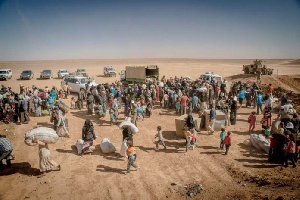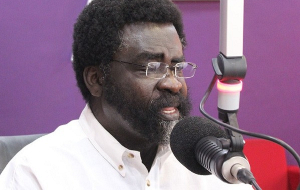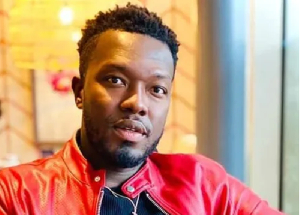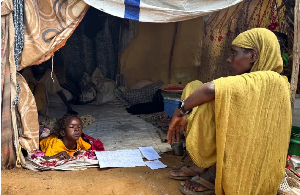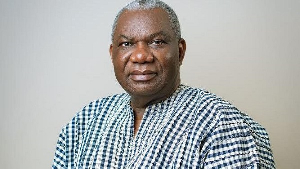The Syrian Civil War, which has raged since 2011, has not only devastated the country but has also reshaped the regional and global power structures surrounding it. Initially, the Syrian government, led by President Bashar al-Assad, enjoyed the support of a coalition of powerful allies, including Russia, Iran and Hezbollah. However, as the war drags on and regional dynamics shift, these alliances face increasing strain. The question looms large: are Assad’s allies, Russia, Iran and Hezbollah, still capable of providing the military and strategic support needed to preserve his regime? And, more crucially, can the international community remain passive while civilians continue to suffer amidst this catastrophic conflict?
The Shifting Sands of Syria’s Alliances
The relationship between Syria and its main allies, Russia and Iran, has long been characterized by mutual interests rather than ideological alignment. Russia has been Syria’s primary military backer since the conflict’s early years, providing crucial air support, weapons and diplomatic cover. Iran, too, has played a pivotal role, offering both military and financial support through its Islamic Revolutionary Guard Corps (IRGC), while Hezbollah, the Lebanese Shiite militant group backed by Iran, has been a vital player on the ground. Together, these forces have helped Assad regain control over much of the country.
However, these alliances are now facing significant challenges that have raised doubts about their continued effectiveness. Russia’s military, while formidable, is overstretched. Its involvement in Ukraine has drained both resources and manpower, leaving its military stretched thin across two theatres of war. The situation in Ukraine has placed enormous pressure on Russia’s defense budget and its ability to maintain military operations abroad. Despite its strategic interest in Syria, Russia’s capability to provide sustained military support to Assad may be limited, particularly if the conflict escalates or shifts in unexpected directions.
Moreover, the global and regional strategic environment has evolved. The war in Ukraine has led to a realignment of global alliances, with Russia facing increasingly hostile sanctions and diplomatic isolation. The Russian military’s involvement in Syria has become more challenging, as Moscow contends with multiple geopolitical crises simultaneously. As a result, Russia’s ability to maintain its role as Assad’s primary military ally could be severely constrained in the coming years.
Iran’s Military Strain
Iran, too, faces increasing challenges in maintaining its support for Assad. The Islamic Republic’s financial and military resources have been stretched by its involvement in various proxy conflicts throughout the Middle East. The ongoing conflict in Yemen, along with its support for militias in Iraq and Lebanon, has depleted Tehran’s military and financial reserves. Furthermore, the Iranian economy has been weakened by years of international sanctions, and the country has faced domestic protests and political instability, which complicates its ability to focus on foreign interventions.
Despite these constraints, Iran remains deeply invested in the survival of Assad’s regime. Syria is a crucial part of Iran’s “Axis of Resistance”, a network of allied groups and governments that stretches from Tehran to Beirut. However, Iran’s ability to project power through the IRGC and other proxy forces in Syria has diminished as its resources become more limited. Iranian military personnel continue to operate in Syria, but there are signs that their capacity to engage in large-scale operations may be waning.
Hezbollah’s Vulnerability
Hezbollah, another key ally of Assad, has also faced significant challenges. The group has been deeply involved in the Syrian conflict, sending thousands of fighters to support Assad’s regime. However, Hezbollah has been hit hard by Israeli airstrikes targeting its positions in Syria. These strikes, part of Israel’s broader strategy to counter Iranian and Hezbollah influence in the region, have disrupted Hezbollah’s operations and weakened its military capabilities. In recent months, Hezbollah’s ability to provide ground support to Assad has been diminished, and the group’s strategic position has become more vulnerable to both Israeli and internal Lebanese political pressures.
While Hezbollah remains a potent force in Lebanon, its overstretched commitments to Syria and its vulnerability to Israeli strikes have raised questions about how much longer it can sustain its involvement in the conflict. The group's leadership faces increasing pressure to balance its commitments in Syria with its political role in Lebanon, further complicating its support for Assad.
The Humanitarian Crisis
While the dynamics of Assad’s military alliances shift, the people of Syria continue to bear the brunt of the conflict. Over half of Syria’s pre-war population has been displaced, and millions more are living in conditions of extreme poverty and insecurity. The brutal fighting between Assad’s forces and various rebel groups, compounded by the ongoing foreign interventions, has left civilians in a perilous situation.
The humanitarian situation in Syria remains dire. According to the United Nations, millions of people are in urgent need of assistance, including food, clean water, medical care and shelter. The conflict has also led to widespread human rights abuses, including the use of chemical weapons, indiscriminate bombings, and torture. The ongoing siege warfare has caused immense suffering, with many civilians trapped in rebel-controlled areas or in regions under Assad’s control, where access to humanitarian aid is severely restricted.
The international community’s response has been inadequate, with a lack of unified action to address the crisis. While numerous aid organizations continue to operate in Syria, the ongoing political deadlock in the United Nations Security Council and the failure of world powers to agree on a coordinated strategy have hindered efforts to alleviate the suffering of civilians.
The Need for Global Intervention
As the situation in Syria becomes increasingly complex, the urgent need for global intervention to protect civilians is clearer than ever. The international community must take meaningful action to address the humanitarian crisis, including pressing for a ceasefire and ensuring that aid can reach those in need. This can be achieved through a coordinated diplomatic effort, coupled with increased pressure on all parties to respect international humanitarian law.
One of the most pressing steps is to ensure that humanitarian aid can reach those trapped in conflict zones. The UN and other international organizations must be granted unfettered access to all areas of Syria, regardless of which party controls them. Besides, efforts to broker a political solution to the conflict must be intensified. While a comprehensive peace agreement seems distant, diplomatic pressure on all sides to negotiate a settlement remains critical.
Furthermore, the international community must hold accountable those responsible for war crimes and human rights violations. Accountability mechanisms, such as international courts or tribunals, must be strengthened to ensure that perpetrators of atrocities face justice. Without accountability, the cycle of violence will only continue.
Conclusion
Syria’s alliances, once a formidable force in preserving Assad’s grip on power, are now increasingly strained. Russia, Iran, and Hezbollah face significant challenges that hinder their ability to provide military support to Assad, raising questions about the regime’s ability to maintain control in the long term. However, the real tragedy lies in the suffering of Syria’s civilians, who continue to endure unimaginable hardship. The international community cannot afford to remain passive in the face of this humanitarian disaster.
The time for decisive global action is now. The international community must unite to alleviate the suffering of the Syrian people, pressure all parties to halt the violence, and work toward a peaceful resolution to the conflict. The plight of Syria’s civilians must not be ignored, and it is the responsibility of the global community to ensure that their suffering is addressed with urgency and compassion.
The writer is a journalist, columnist specializing in international affairs, PR expert, and journalism lecturer with a PhD in Journalism and expertise in global diplomacy and foreign policy. Email: achmondsky@gmail.com
Opinions of Friday, 13 December 2024
Columnist: Dr. Richmond Acheampong

